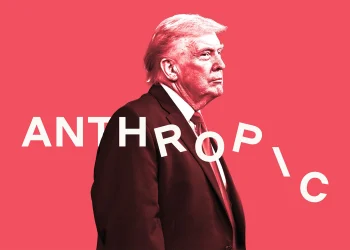Uganda just launched Sunflower, an AI language model that understands local languages better than ChatGPT or Google’s Gemini.
Dr. Aminah Zawedde, Permanent Secretary of Uganda’s Ministry of ICT, unveiled this homegrown technology on October 11, 2025. Built by Sunbird AI, a local non-profit organization.
Uganda’s AI Beats Global Tech Giants
Sunflower outperforms existing global AI systems in most Ugandan languages. Sunbird AI tested their model against ChatGPT and Google’s Gemini 2.5 Pro. The results show Sunflower delivers more accurate translations and better understands local context.
The AI speaks languages like Luganda, Runyankole, Ateso, Acholi, and Lugbara. These languages represent different language families across Uganda: Bantu, Nilotic, and Central Sudanic.
Local Data Powers Better Results
Sunbird AI took a different approach than global tech companies. They collected data from sources these companies ignore: printed books, school materials, radio programs, and cultural archives.
The team worked with Makerere University, Simba FM, and the Cross-Cultural Foundation of Uganda. They digitized over 500 hours of radio content and thousands of pages of text. This gave Sunflower training data that reflects how Ugandans actually speak.
“The model was built by Ugandans, for Ugandans, to make technology more accessible to every citizen regardless of language or location,” according to Uganda’s Ministry of ICT.
Real Impact Across Multiple Sectors
Sunflower plans to transform how Ugandans access information in health, agriculture, education, and governance. A farmer in Arua can now get weather updates in their local dialect. A student in Mbarara can translate learning materials into familiar languages.
Dr. Zawedde painted a clear picture of the AI’s potential: “A mother in Mbarara asking health questions in Runyankole and receiving accurate AI-guided responses; a farmer in Masaka getting agricultural advice in Luganda.”
The technology also strengthens governance. Citizens can better understand government services when information comes in languages they know best.
Open Source Approach Enables Wider Use
Unlike ChatGPT or other proprietary systems, Sunflower uses Apache 2.0 licensing. Anyone can adapt and extend the model for their needs. This approach supports research, education, translation, and information access across Uganda and potentially other African countries.
The AI comes in two versions: Sunflower 14B and Sunflower 32B. Both models are available on Hugging Face for researchers and developers worldwide.
The organization recommends validating outputs for specific applications and fine-tuning when necessary. They will continue working on improvements and plan regular updates.
Building Technology That Includes Everyone
For decades, digital systems have prioritized languages of economic power. English dominates most AI training data, leaving thousands of other languages underrepresented.
Sunflower challenges this pattern. By focusing on Uganda’s linguistic diversity, it shows that inclusive technology requires understanding who gets left out of digital conversations.
“When language becomes visible, so do the people who speak it,” notes the Sunbird AI team.
This approach could scale across East Africa’s multiple languages. The same framework might strengthen multilingual education and improve public service communication throughout the region.
What Comes Next
Uganda’s success with Sunflower demonstrates that African countries can build competitive AI technology locally. The project shows how national ambition combined with strategic policy support creates meaningful innovation.
Other African nations are likely watching Uganda’s progress closely. The continent hosts thousands of languages, most poorly supported by current AI systems.
Sunflower is more than a technological achievement. It shows how AI can become a tool of empowerment rather than exclusion when built with communities instead of for them.
















